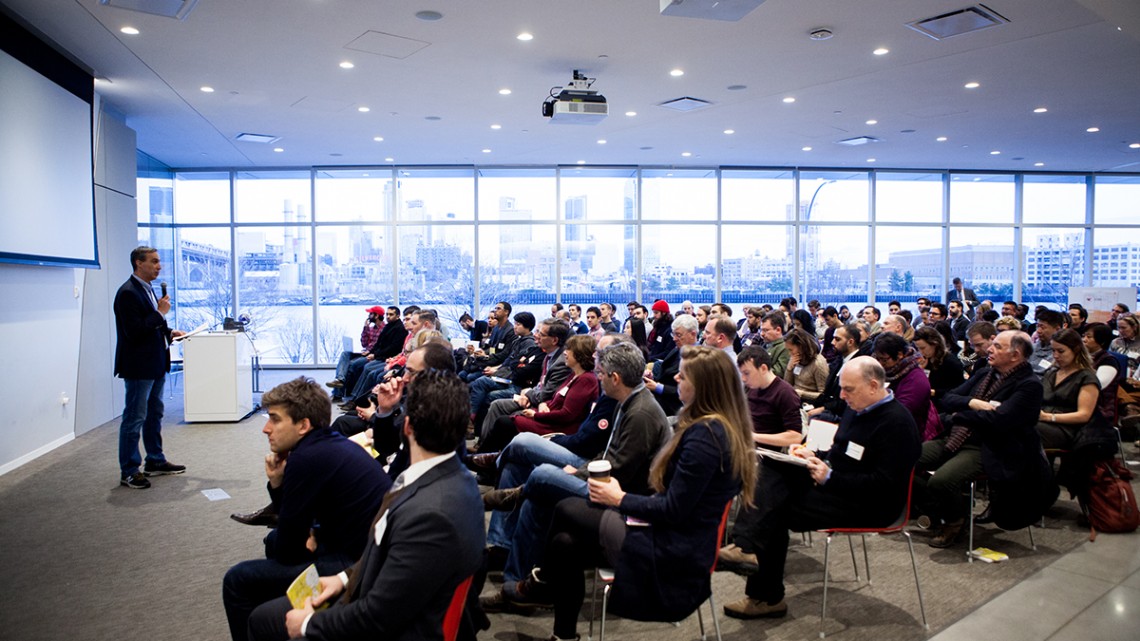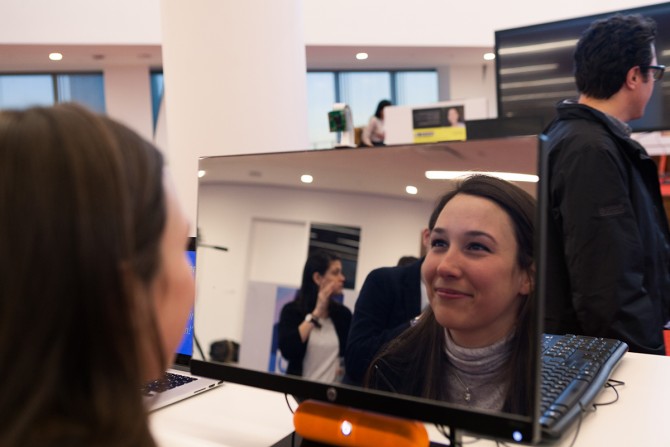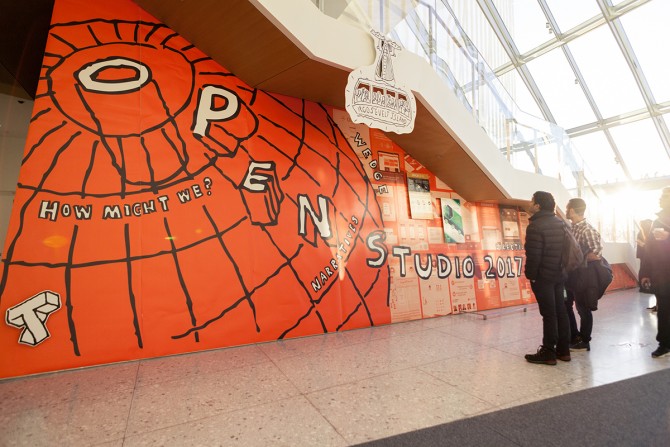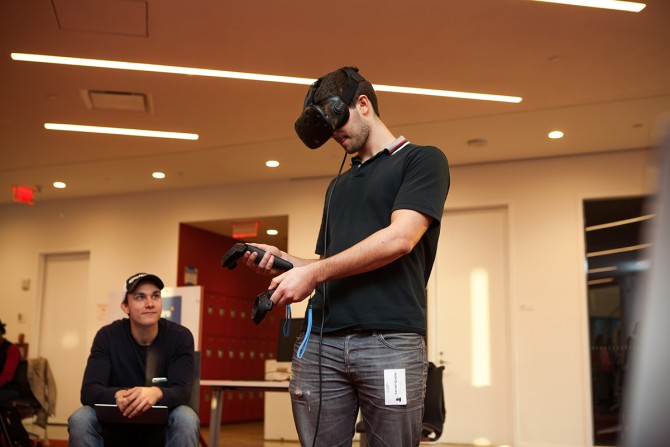
Dan Huttenlocher, the Jack and Rilla Neafsey Dean of Cornell Tech, kicks off the first of four presentation sessions during the Open Studio on Roosevelt Island.
Cornell Tech startup ideas get bigger, brighter, bolder
By Jon Craig
In the first Cornell Tech Open Studio presentations on the new Roosevelt Island campus, the scope, quality and potential reach of startup pitches appears to be exploding exponentially every year.
And that goes for student, faculty and alumni excitement, too, at the Tata Innovation Center as winter blasted outside along New York City’s East River Dec. 14.
A total of 20 graduate students and postdoc teams gave presentations of product development ideas to improve health care, food services, communication, cybersecurity and quality of life. Many of the presentations came from the Product Studio class of 260 master’s degree students and 52 teams.
Cornell Tech’s student population continues to rise with more than 300 graduate students currently enrolled. That’s triple the size of the class from just three years ago, and eventually the campus will include nearly 2,500 students, according to Dan Huttenlocher, the Jack and Rilla Neafsey Dean of Cornell Tech. Currently, the campus has close to 30 tenured faculty members, eight visiting faculty and practitioners.
“We still have a lot of growth ahead of us,” Huttenlocher said. “It is really an unparalleled level of cooperation across disciplines.”
Since 2014, 38 new companies have spun out of Cornell Tech employing nearly 200 people, according to Huttenlocher.
Open Studio gives a mix of master’s and doctoral students and startup postdocs a chance to showcase their development progress and get feedback.
“Our master’s students don’t learn in a vacuum,” Huttenlocher said.
They are inspired by and work on challenges presented by leading companies and organizations in New York and across the country.
Every fall, teams of technical, business, law, engineering and design students work together to create prototypes of products and services in Product Studio.
The Con-Nect app, resulting from a challenge from ConEd, helps manage electric grid use at peak times by prompting customers to turn off smart devices during these peaks for reward points.
Working with Capital One, another student team developed Zero-bit, a user-friendly, military-grade secure storage platform using decentralized information to secure data like bank statements.
A team challenged by the Bill & Melinda Gates Foundation developed Pocket Change, an app that empowers people in developing countries to act as their own ATMs. Users exchange money with others in safe meeting places after taking images of currency and dollar serial numbers on phones. It’s designed to provide financial options to underserved communities like remote farmers.
Tatch, a Runway Startup Postdoc company at the Jacobs Technion-Cornell Institute, is developing a wireless smart patch for accurate and comprehensive sleep studies at home – eliminating costly, time-intensive studies involving many wires and medical staff. Tatch CEO Amir Reuveny said 1 in 4 Americans have chronic sleep disorders. You’re 23 times more prone to having heart attacks in this sleep-deprived condition, he said. And $7.5 billion is spent annually making sleep diagnoses, according to Reuveny.
A cross-program team of students in the Health Tech and Connective Media Technion-Cornell Dual Master’s Degrees programs also presented their specialization project, Reflective Health. Using smart mirrors, their product monitors a user’s skin anomalies and moles to observe whether they change color or shape over time and transmits these images to health care specialists to help early detection of melanoma. According to the students, a patient’s mortality rate could be reduced by 63 percent by using their application.
Other Runway Startups to present at the event included Biotia and OnSiteIQ. Biotia has developed technology to identify pathogens in hospitals to reduce infections and deaths.
To reduce construction site accidents, OnSiteIQ, uses computer vision algorithms to create remote, 360-degree walkthroughs and assess potential risks. “You can walk the site in virtual reality,” a CEO Ardalan Khosrowpour said, reducing the cost of inspections while increasing their frequency and effectivity.
Jon Craig '80 is a journalist and digital editor based in New York City.
Media Contact
Get Cornell news delivered right to your inbox.
Subscribe

